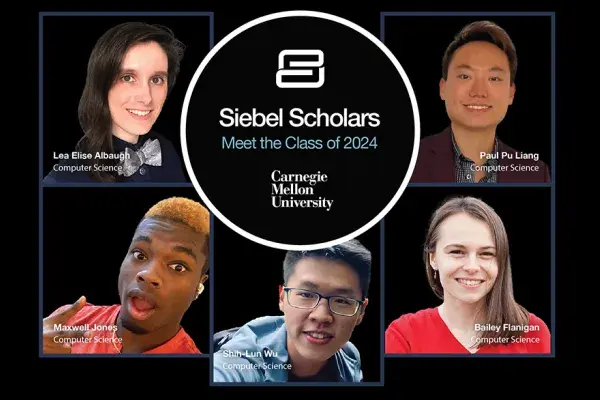
Smartwatches Could One Day Help Diagnose ADHD in Children
Smartwatch sensor technology developed by Carnegie Mellon University researchers could help doctors make more accurate diagnoses of attent...

HCII Seeks Capstone Sponsors for Spring 2024
Apply our future HCI leaders to your organization's challenges next year The Human-Computer Interaction Institute invites companies, star...

Five SCS Students Named 2024 Siebel Scholars
Five graduate students in Carnegie Mellon University's School of Computer Science have been named Siebel Scholars for 2024. Lea Albaugh, B...

Understanding Data Science Critical for Life, Education
CMU experts turn everyday educators into data scientists Teachers and administrators have access to more data on how their students are l...

Yao’s Seed Carrier Shortlisted for Science Breakthrough of the Year Award
Lining Yao, the Cooper-Siegel associate professor in the School of Computer Science's Human-Computer Interaction Institute, and her E-seed...

Celebrating Our Recent PhD Graduates and Postdocs
With another academic year behind us, it is time to wish a new class of graduates well on their professional journey. The HCII is proud t...

CMU's PLUS Program Expands to Multiple Schools, Community Centers
Not all students will ask for help when they're struggling, but more of them can get the support they need thanks to the expanded reach of...

AI Should Be Kind and Fair, Young Black Girls Tell CMU Researchers
When asked about future uses for artificial intelligence, a group of fifth- and sixth-grade Black students attending a summer camp at Carn...

Spring 2023 Awards Roundup
SCS faculty and students win awards, grants and recognition every day. Here's a look — neither exhaustive nor abbreviated — at who won wha...


